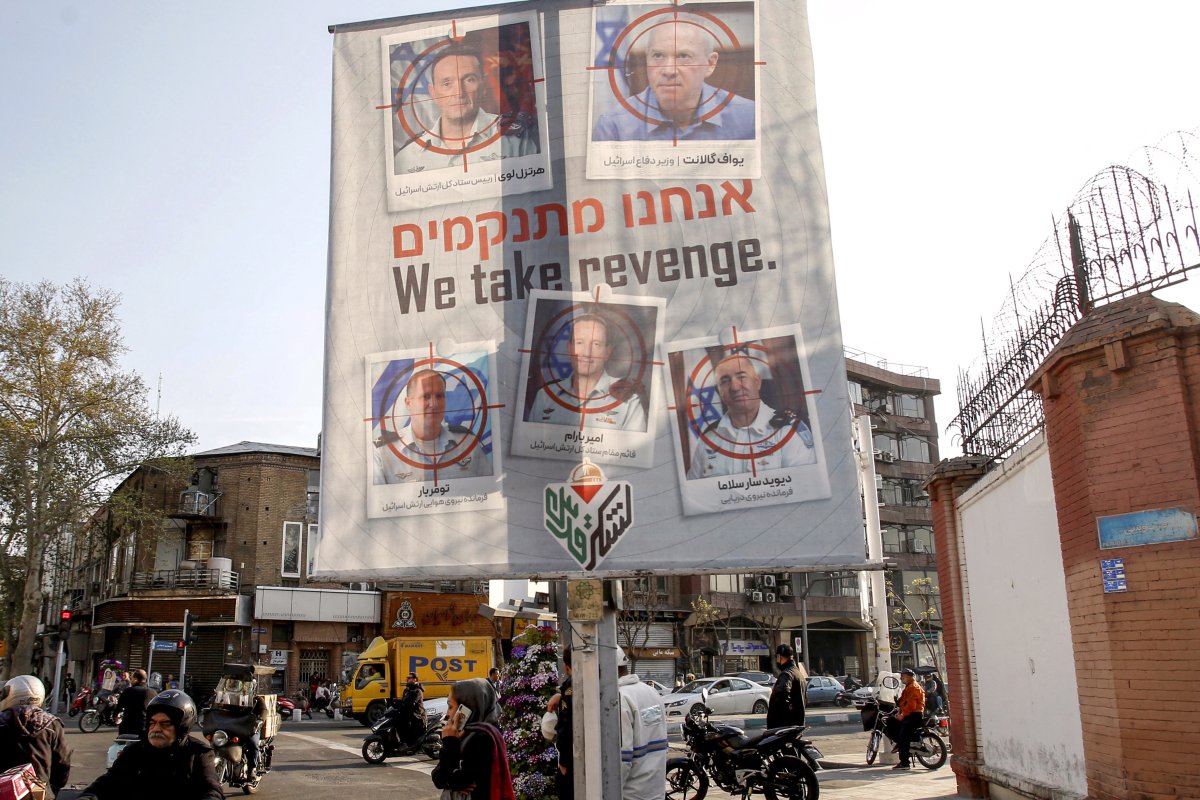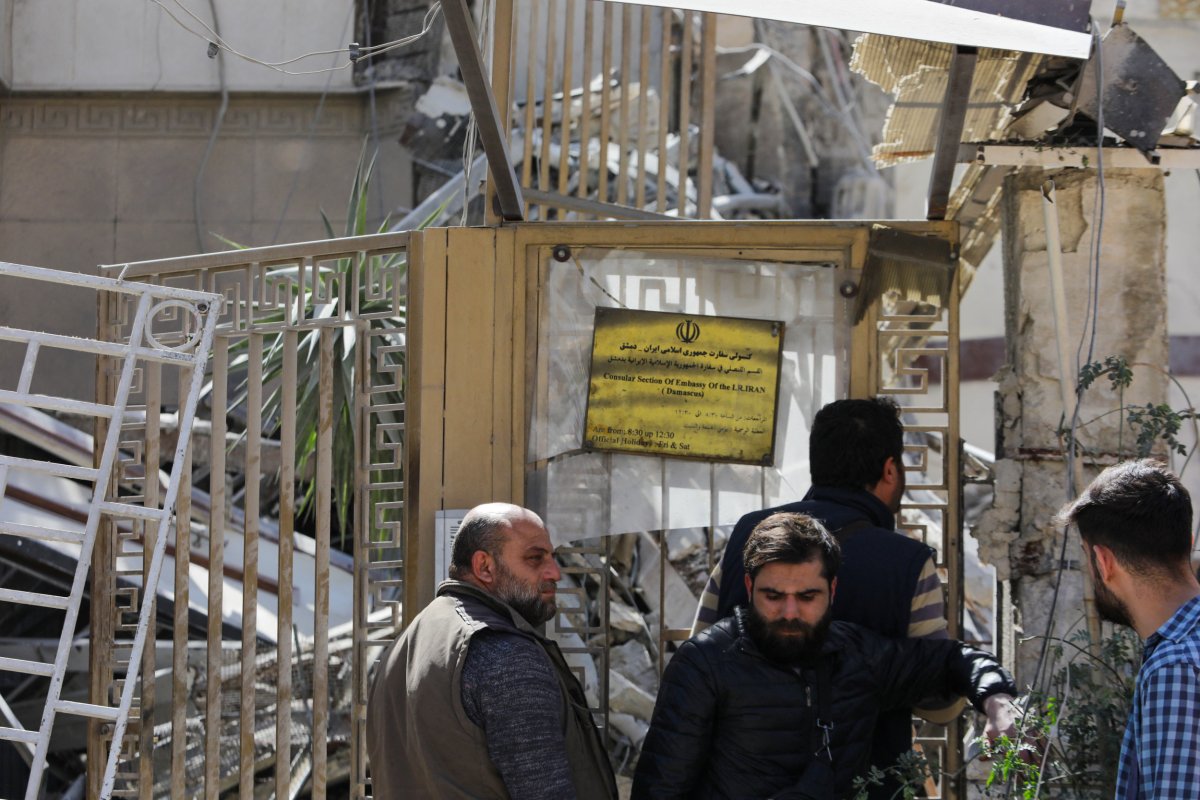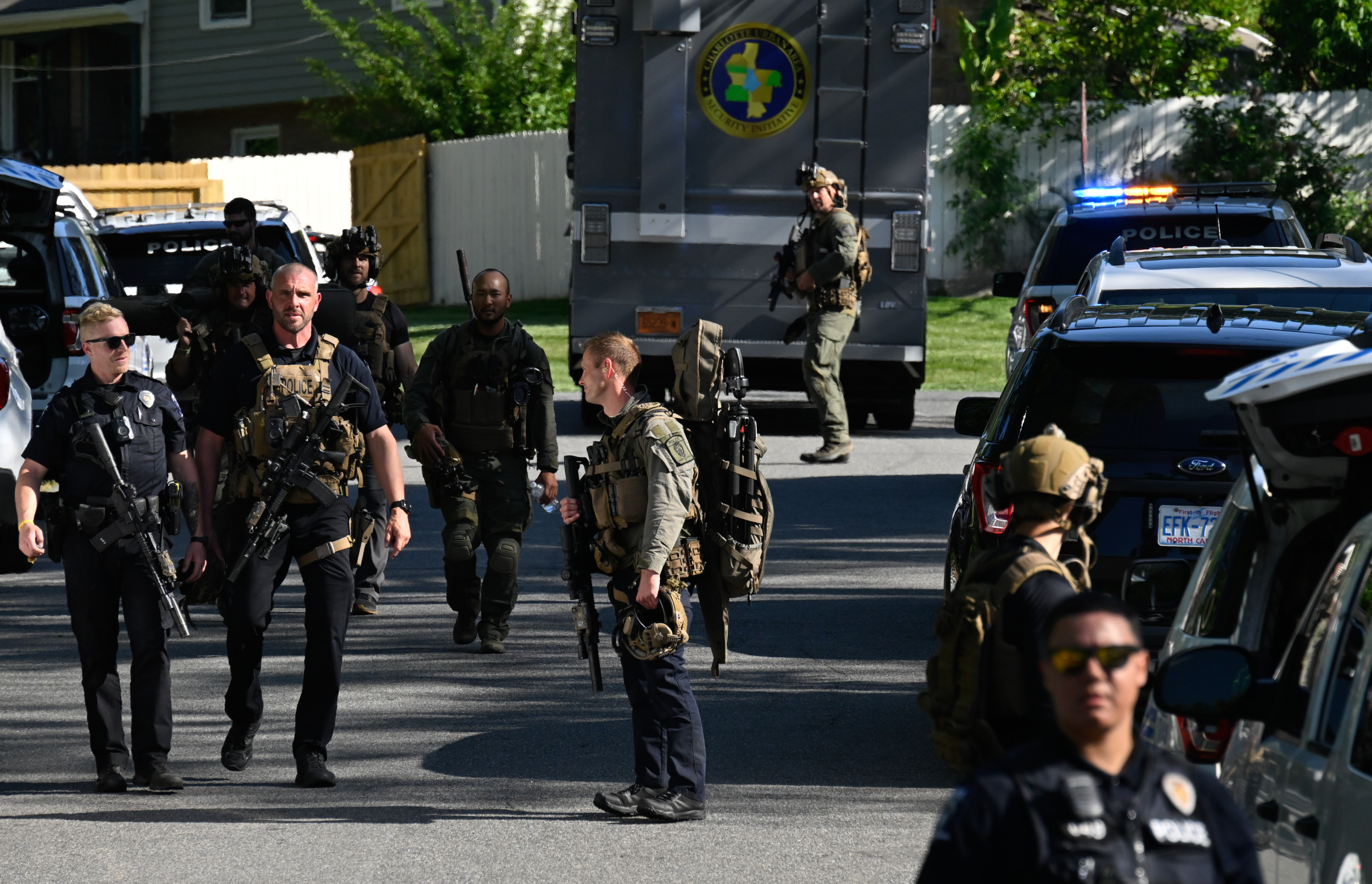A senior Iranian official has issued a new warning to Israel in the wake of a deadly strike on the Islamic Republic's embassy in Syria, warning Tehran was being pushed toward active retaliation, in a statement shared with Newsweek.
The statement, delivered Tuesday by Iran's United Nations ambassador Zahra Ershadi to U.N. Security Council President Vanessa Frazier, blamed Israel for the "horrific crimes and cowardly terrorist attacks" that struck the Syrian capital on Monday, killing up to seven Iranian personnel, including two leading commanders of the Islamic Revolutionary Guard Corps.
The attack, for which the Israel Defense Forces (IDF) has declined requests to confirm or deny its role, was strongly condemned by Ershadi as a violation of international law, along with Syria's sovereignty. She argued that the strike "goes beyond mere criminality; it represents a profound affront to the shared principle of the international community, namely, the inviolability of representatives and diplomatic and consular premises."
Echoing her previous letter to U.N. leadership shared with Newsweek by the Iranian Mission to the U.N. on Monday, Ershadi urged the U.N. Security Council to issue a strong rejection of the alleged Israeli actions.
As tensions stemming from the conflict between Israel and the Palestinian Hamas movement in Gaza continue to spill over across the region, Ershadi asserted that "the Islamic Republic of Iran has exercised considerable restraint, but it is imperative to acknowledge that there are limits to such forbearance."
"The occupying regime must bear full responsibility for its consequences," Ershadi said. "Iran reserves its legitimate and inherent right under international law and the United Nations Charter to take a decisive response to such reprehensible acts."

Condemnation over the attack was not limited to officials in Tehran and Damascus and garnered criticism from across the region and beyond, including from China and Russia.
Ershadi, in her address, thanked both Beijing and Moscow for supporting Tehran's calls to bring the issue up at the U.N. Security Council.
U.N. Special Envoy for Syria Geir Pedersen also issued his condemnation Tuesday in a statement shared with Newsweek by his office, arguing that "the principle of the inviolability of diplomatic and consular premises and personnel must be respected in all cases in accordance with international law."
"At a time of heightened violence and dangers in the region, instead of escalations, actors should be strictly respecting their obligations under international law," Pedersen said Tuesday. "It is vital that all concerned exercise utmost restraint and avoid further escalation. Any miscalculation could lead to broader conflict with extremely grave consequences for Syria and the region."
Ershadi, too, argued the attack "could escalate tensions in the region and potentially spark further conflict involving other nations" in her address Tuesday.
The United States, for its part, has repeatedly warned against such actions that could be viewed as pushing the region toward a full-scale conflict. U.S. Secretary of State Antony Blinken reiterated this position on Tuesday but fell short of condemning Israel.
"We're working very closely together to avoid an escalation, be it in Lebanon, in Iraq, or in Syria; or be it in the Red Sea, or in Yemen, etc," Blinken said during a press conference in Paris. "And with respect to the strikes in Syria, we are trying to ascertain the facts. We are in the process of learning exactly what happened, and we are continuing to work to understand the details."
"But we are working everyday together—France and the United States, especially in Lebanon—to avoid that there be a conflict between the parties," he added, "a conflict about which we are convinced neither the Israelis, neither Hezbollah, neither Lebanon want, or neither Iran."
White House National Security Council Strategic Communications Coordinator John Kirby told reporters that same day that he "cannot speak to what happened in Damascus," confirming only that "the U.S. wasn't involved."

Iranian officials have broadcast their support for "Axis of Resistance" militias operating in Lebanon, Iraq, Syria and Yemen, but have denied they exerted direct control over such groups.
The IDF, meanwhile, has for years pursued a secretive campaign of airstrikes against suspected Iran-linked targets in Syria, accusing Tehran of attempting to establish forward operating bases through the presence of allied militias. Israel adopted a policy of strategic ambiguity in their involvement in such raids, though Israeli political and military officials have occasionally acknowledged certain operations.
While Israeli officials have remained silent on the attack in Damascus, the IDF did admit its role in a separate attack Monday that killed several employees of the World Central Kitchen NGO in Gaza.
In a statement, IDF spokesperson Rear Admiral Daniel Hagari expressed his "sincere sorrow" over the incident and vowed to open a probe into the circumstances of the strike.
Ershadi referenced this attack in her remarks on Tuesday, citing it as evidence that Israel deliberately targeted civilians. The IDF has repeatedly denied such accusations, and has accused Hamas of targeting non-combatants, an allegation the group has also denied.
She also accused the U.S. and its allies of attempting to shift blame to Iran over the crises gripping the Middle East, and of enabling Israel on the world stage.
"Iran is never seeking to contribute to the spillover of the conflict in the region nor does it to escalate or spread the tension to the entire region," Ershadi said. "Despite expressing concern over the spillover of the tension in the region, the U.S. tries to misuse the situation to destabilize Syria and the region.
"The United States is responsible for all crimes committed by the Israeli regime," Ershadi added. "The savage and genocide acts in Gaza could not [have] happened without explicit consent, and comprehensive political, financial, and military support, as well as partnership, from the United States."
Uncommon Knowledge
Newsweek is committed to challenging conventional wisdom and finding connections in the search for common ground.
Newsweek is committed to challenging conventional wisdom and finding connections in the search for common ground.
About the writer
Based in his hometown of Staten Island, New York City, Tom O'Connor is an award-winning Senior Writer of Foreign Policy ... Read more
To read how Newsweek uses AI as a newsroom tool, Click here.








